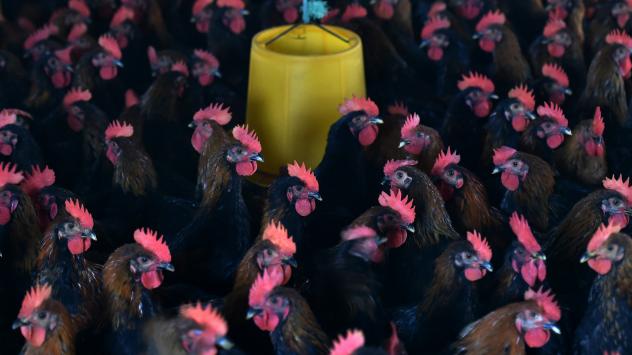-
Tips for becoming a good boxer - November 6, 2020
-
7 expert tips for making your hens night a memorable one - November 6, 2020
-
5 reasons to host your Christmas party on a cruise boat - November 6, 2020
-
What to do when you’re charged with a crime - November 6, 2020
-
Should you get one or multiple dogs? Here’s all you need to know - November 3, 2020
-
A Guide: How to Build Your Very Own Magic Mirror - February 14, 2019
-
Our Top Inspirational Baseball Stars - November 24, 2018
-
Five Tech Tools That Will Help You Turn Your Blog into a Business - November 24, 2018
-
How to Indulge on Vacation without Expanding Your Waist - November 9, 2018
-
5 Strategies for Businesses to Appeal to Today’s Increasingly Mobile-Crazed Customers - November 9, 2018
The UN General Assembly call for global action to tackle antimicrobial resistance
Antimicrobial resistance (AMR) happens when bacteria, viruses, parasites, fungi develop resistance against medicines that were previously able to cure them.
Advertisement
The global forum is therefore expected to produce a global commitment on the need for better stewardship of antibiotics, particularly in human health; improved diagnostics to help determine when people really need them and when they do not; and also better surveillance of infectious diseases and methods to stimulate the discovery and development of new antibiotics, particularly for combating superbugs, for all.
The economic impact of antibiotic resistance has vast consequences, both in regards to the economy and for food, according to Dr. Keiji Fukuda of the WHO.
“Antimicrobial resistance threatens the achievement of the Sustainable Development Goals and requires a global response”, Thomson said. “But it is a global health threat that needs a global response”.
For the first time, Heads of State committed to taking a broad, coordinated approach to address the root causes of AMR across multiple sectors, especially human health, animal health and agriculture. “Member States have today agreed upon a strong political declaration that provides a good basis for the worldwide community to move forward”.
According to Dr. Margaret Chan, Director General of the World Health Organization, “the commitments need to be translated into rapid, effective and able to save lives in the areas of human, animal and environmental”.
The agreement was reached just before the general assembly convened to discuss the threat of antibiotic resistance, which is only the fourth health issue to trigger a general assembly meeting. “We urge national authorities to strongly support all sectors involved, through promotion of responsible and prudent use, good practices and implementation of established standards and guidelines”, added Dr Monique Eloit, Director-General of OIE. The UK reports that bacteria that is resistant to antibiotics could, by the year 2050, cost the world $100 trillion.
Companies and farmers often use antibiotics not only to treat sick animals, but to maintain them on a steady diet to prevent illnesses or allow them to grow more quickly. There should be a recommendation to phase them out as growth promoters in food animals.
Advertisement
In a joint statement issued during the meeting, countries reaffirmed their commitment to developing action plans based on the Global Action Plan on Antimicrobial Resistance developed in 2015. They are also assessing the risk of antimicrobial resistance emerging due to calves being fed with milk containing residues of antibiotics.





























